| |  | | | Breaking Free: A Heroic Rescue and Israel's Battle for Survival By Ahnaf Kalam ● Oct 11, 2024 Smart Brevity® count: 4 mins...1080 words In the midst of the Middle East's relentless conflict, Fawzia Sido's escape from ISIS captivity—after years of enslavement and a harrowing journey from Syria to Gaza—highlights both the reach of jihadist networks and the complex alliances working to counter them. Her liberation by Israeli forces and international allies underscores the ongoing struggle against Islamist extremism, as Israel also faces challenges on its northern border, where Hezbollah's missile threat looms despite limited IDF raids aimed at dismantling the group's military infrastructure. Meanwhile, Israel contends with skewed media narratives, as phrases like "Israel's war in Gaza" shift blame onto the nation, misrepresenting the origins of the conflict. As tensions with Iran escalate, Israel's strategy—whether to respond proportionally or target Iran's assets to weaken its regime—shapes the broader geopolitical landscape. One year after the October 7 massacre, Israel remains resilient, adapting to multi-front warfare and balancing military action with diplomatic efforts, as threats from both Iran and the Palestinian narrative continue to challenge its global standing. | | A Yazidi Woman Is Liberated from Slavery in Gaza 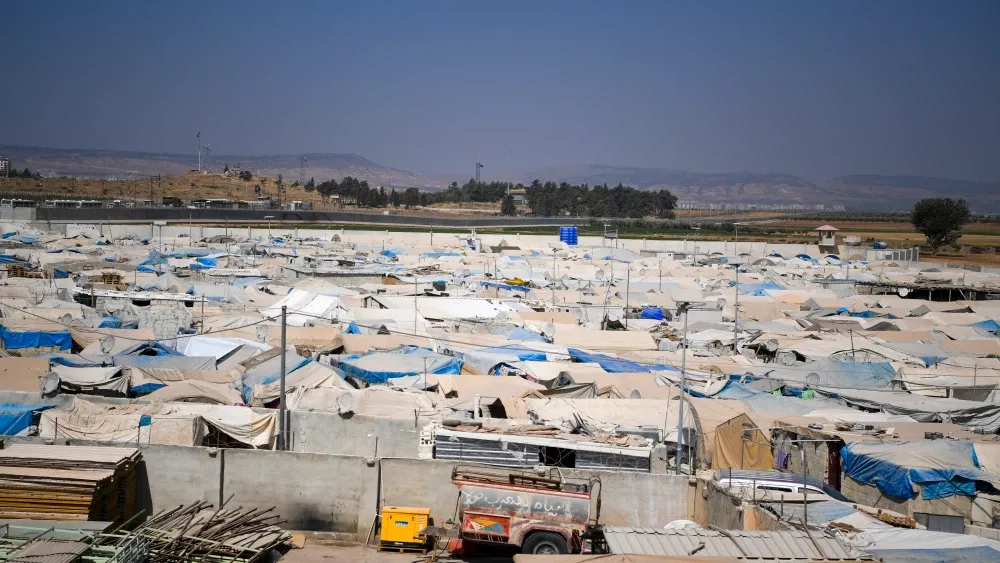 By: Jonathan Spyer Fawzia Sido's escape from jihadist captivity highlights the ongoing struggles and alliances in the Middle East. Fawzia's story underscores the vast networks of Islamist groups and the humanitarian efforts that defy them, illustrating the complex dynamics of the region. A Harrowing Journey: Captured by ISIS in 2014, Fawzia's ordeal took her from Syria to Gaza, revealing the interconnectedness of jihadist groups and their enablers across the Middle East. Rescue and Hope: Thanks to efforts by Israeli forces and international allies, Fawzia is now free and reunited with her family, aspiring to study medicine and build a new life. | | A Limited Lebanon Raid with Narrow Goals Is No Game-Changer, but Comes with Risks 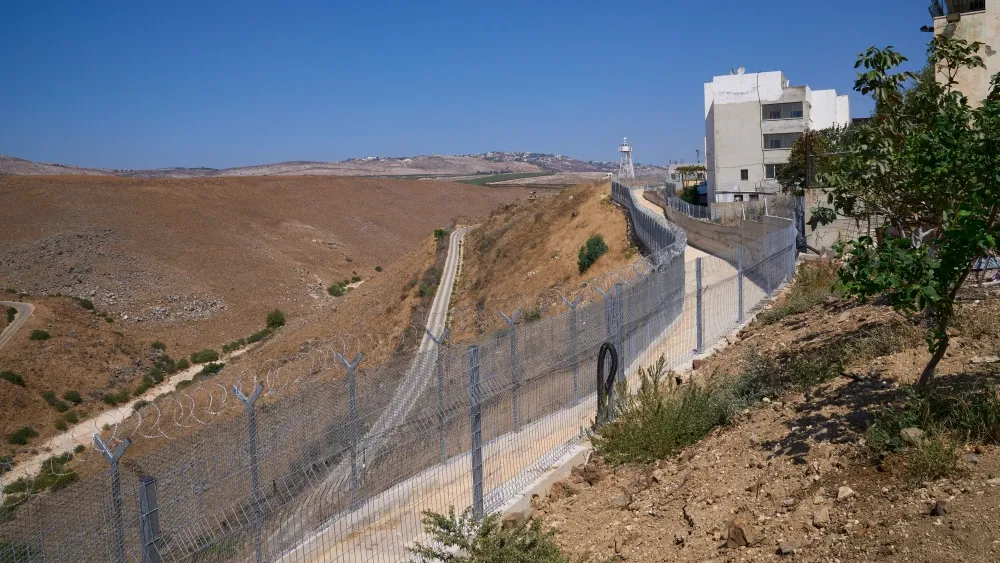 By: Lazar Berman IDF's limited raid in Lebanon highlights strategic risks despite narrow goals. Why it matters: The operation aims to dismantle Hezbollah's military infrastructure, but the threat from mobile anti-tank missile teams persists, affecting Israeli border security. The big picture: Hezbollah has faced setbacks, but its capacity for resistance and potential retaliation remain concerns for Israel. What's next: Israel must balance military actions with diplomatic efforts to maintain stability, as the potential for escalation lingers. | | The Phrase 'Israel's War in Gaza' Is Anti-Israel Propaganda 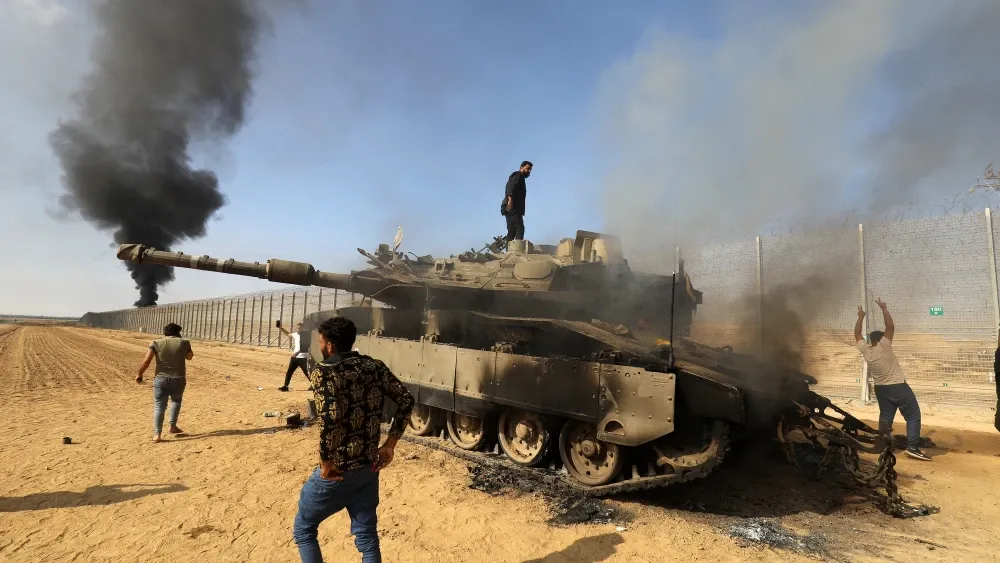 By: A.J. Caschetta Media terminology can shape perceptions of the Israel-Hamas conflict, impacting international understanding. The problem: The phrase "Israel's war in Gaza" shifts blame onto Israel, misrepresenting the conflict's origins and dynamics, potentially influencing public opinion and policy. Media Dynamics: Many outlets use terms that suggest Israel is the aggressor, despite Hamas breaking the ceasefire and initiating hostilities, creating a skewed narrative. Terminology Alternatives: Advocates propose "Hamas-Israel War" or "Israel's efforts against Hamas" to more accurately reflect the conflict, encouraging balanced coverage and awareness. | | Should Israel's Response to Iran Attack Be Proportional? 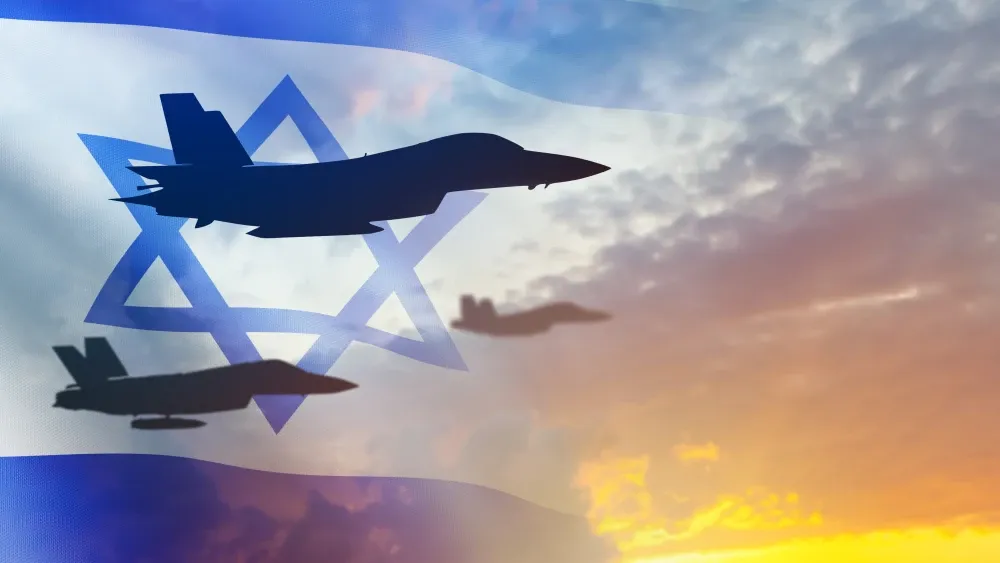 By: Jim Hanson Israel must decide whether a proportional response is adequate against Iran's multi-front war. Why it matters: Misinterpretations of proportionality in warfare could limit Israel's strategic options, impacting its ability to effectively counter Iran's aggression and protect its citizens. Legal Perspective: Proportionality in warfare is about achieving legitimate military objectives, not matching force with force, allowing Israel to pursue broader goals in Gaza and beyond. Strategic Decisions: Jerusalem's options range from limited strikes to dismantling Iran's nuclear ambitions, guided by the need to ensure long-term security rather than appease international expectations. | | Israel Should Target Islamic Republic of Iran's Assets to Speed Regime's Collapse 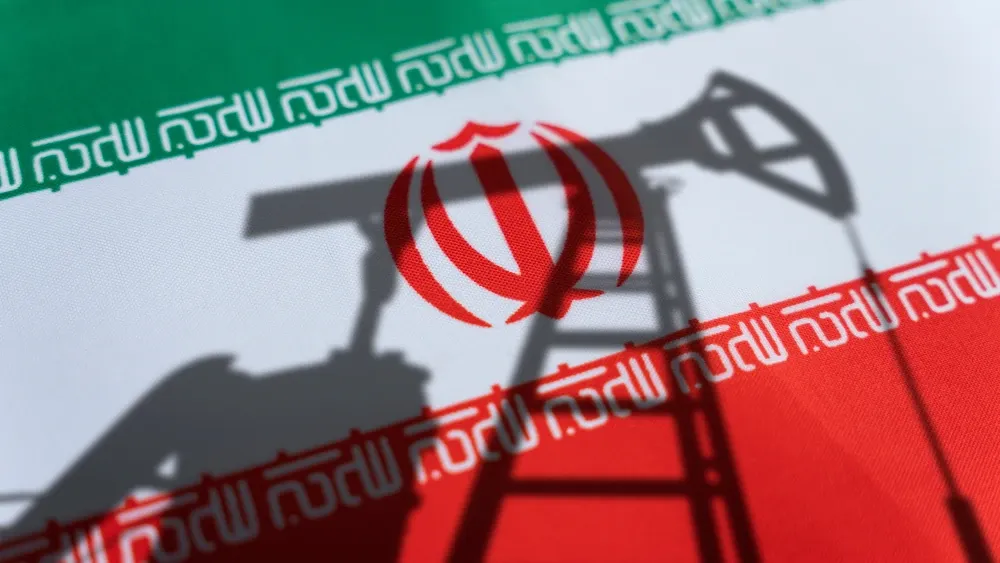 By: Saeid Golkar Israel may target Iran's assets to weaken its military and security apparatus, potentially speeding the regime's collapse. Why it matters: By undermining Iran's ability to repress its population, Israel could foster conditions for democratization and disrupt Iran's regional influence. Strategic Options: Israel considers strikes on infrastructure and key military sites, aiming to balance military objectives with minimizing harm to civilians. Public Diplomacy: Israel reaches out to the Iranian public, distinguishing between the people and their ruling elites, to garner support and emphasize shared interests. | | Israel's Two Archenemies, Iran and the Palestinians 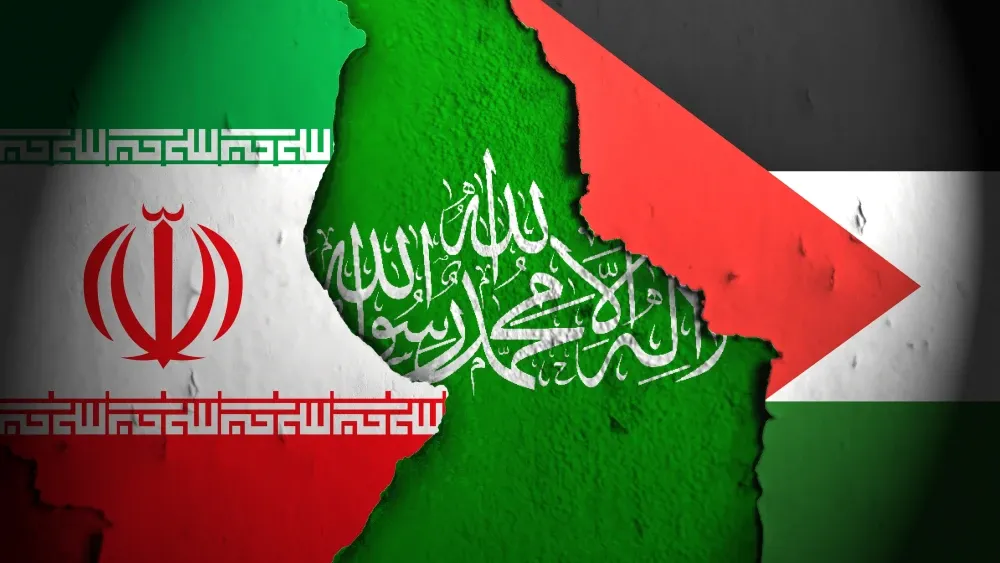 By: Daniel Pipes Israel faces existential threats from Iran's aggression and Palestinian narratives, impacting its global standing. Why it matters: Iran's military ambitions and the Palestinians' anti-Zionist narrative present unique challenges, complicating Israel's path to becoming a normal state. Iran's Hostility: Iran's "ring of fire" strategy surrounds Israel with well-armed enemies, integrating it into a regional anti-Tehran alliance. Palestinian Narrative: The Palestinian issue garners significant global attention, leveraging perceived victimization to fuel anti-Zionist sentiment. | | Notes from a Long War: Israel One Year on from the October 7 Massacre 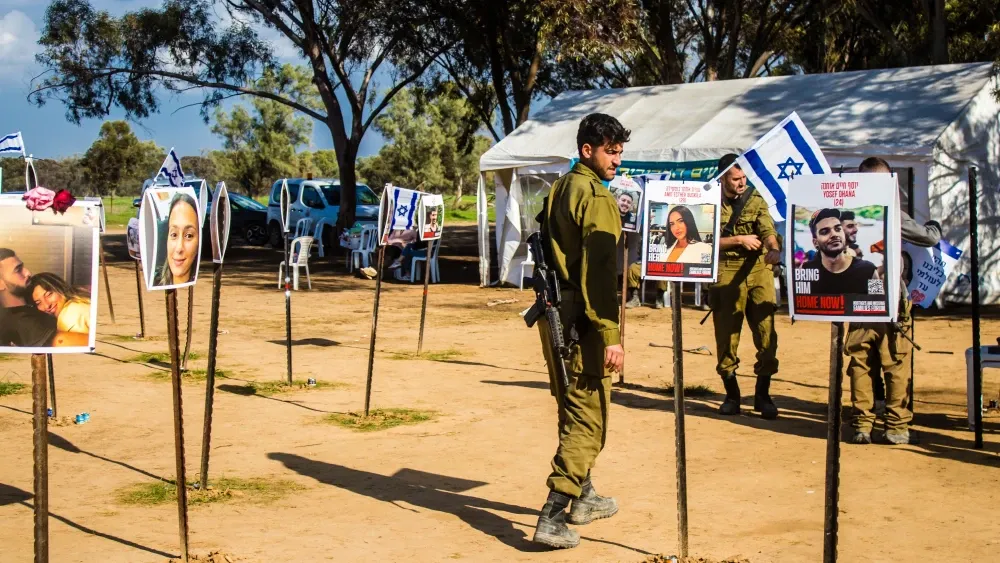 By: Jonathan Spyer A year after the October 7 massacre, Israel faces a prolonged conflict, disproving assumptions of its vulnerability. Why it matters: The initial attacks tested Israel's resolve, but the nation has demonstrated resilience and adaptability in the face of multi-front warfare. Historical Context: Echoing past conflicts, Israel's response has been marked by rapid mobilization and strategic counterattacks, challenging perceptions of its societal fragility. Looking Ahead: As the conflict evolves, Israel continues to adapt its strategies, aiming to secure its borders and deter future threats while maintaining social cohesion. | | One Year After October 7: Iran and Israel on the Brink 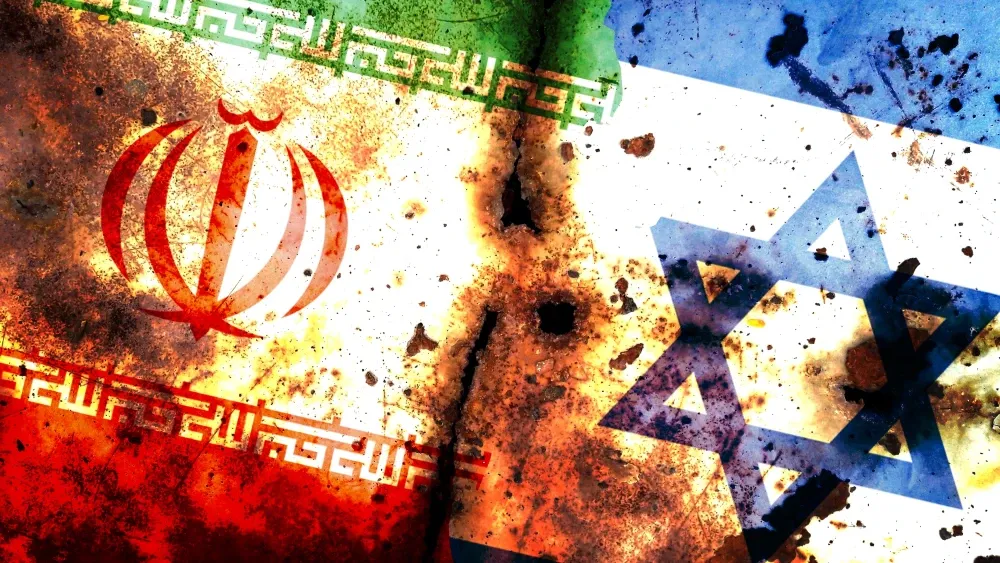 By: Amatzia Baram A year after the October 7 massacre, Iran and Israel face escalating tensions, shaping regional strategies. Why it matters: Iran's strong strikes on Israel and the fate of Hezbollah influence Tehran's approach, impacting Middle Eastern stability and global energy markets. Tehran's Dilemma: With Hezbollah weakened, Iran grapples with internal divisions and economic pressures, debating direct retaliation versus preserving oil exports. Strategic Calculations: Israel's response and potential reprisals weigh heavily on regional dynamics, as both nations navigate complex geopolitical landscapes. | | | | | Israel stands at the heart of a multifaceted struggle for survival. From liberating captives like Fawzia Sido from the grip of jihadist terror to confronting Hezbollah's persistent threat and Iran's broader ambitions, Israel faces an array of existential challenges. Yet, beyond the battlefield, it is also engaged in a fight for truth, as distorted media narratives threaten to cloud the reality of its position. In this enduring conflict, Israel's resilience, clarity, and resolve are its strongest defenses against both its enemies and a world too often quick to misunderstand its cause. Stay tuned for the next issue of the Dispatch for further developments.
Sincerely,
Ahnaf Kalam
Digital Media Specialist
Middle East Forum | | | | Feedback Please share your thoughts on this edition. Was this edition useful?  

Your responses are anonymous |        MEF, an activist think tank, deals with the Middle East, Islamism, U.S. foreign policy, and related topics, urging bold measures to protect Americans and their allies. Pursuing its goals via intellectual and operational means, the Forum recurrently has policy ideas adopted by the U.S. government.
Copyright © 2024 Middle East Forum, All rights reserved.
Our mailing address is:
Middle East Forum
1650 Market Street, Suite 3600
Philadelphia, PA 19103 | | | | | Powered by 
| | This email was sent by Middle East Forum via Axios HQ | | | |
0 коммент.:
Отправить комментарий